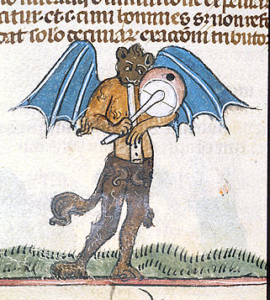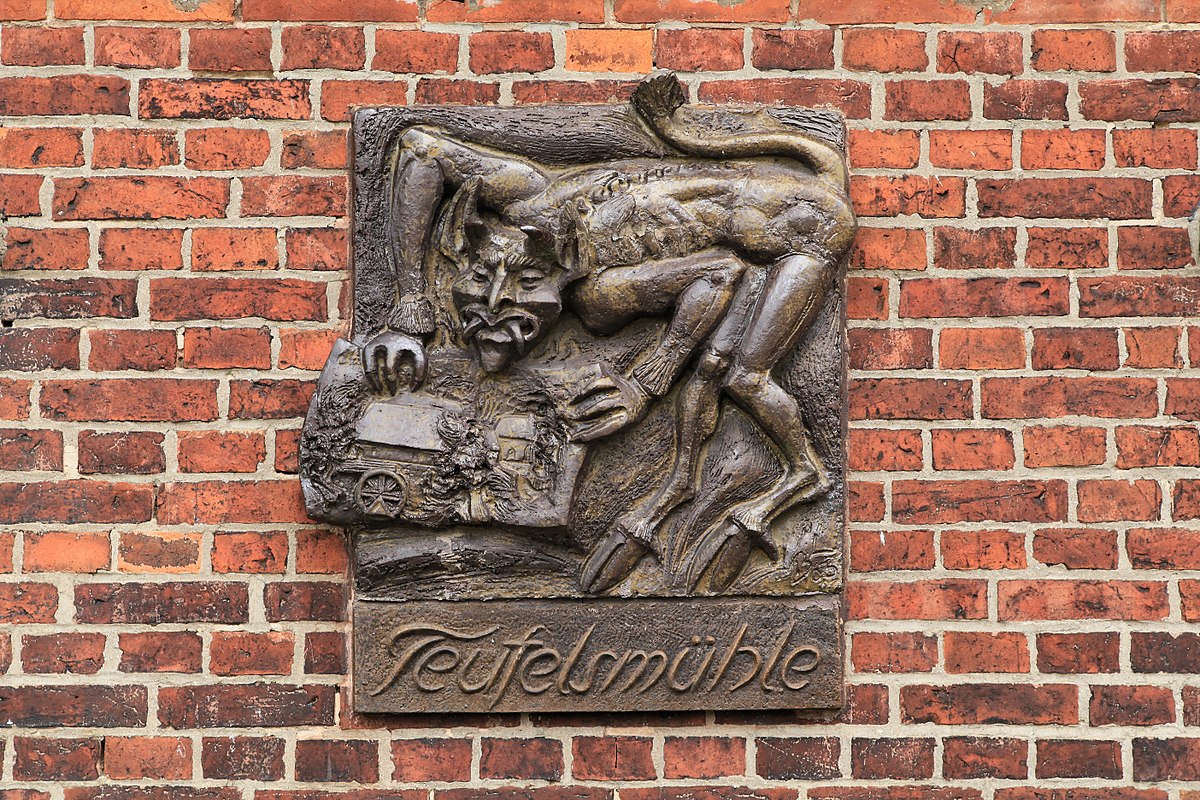I’m going to begin this post with a story about the Devil. And I dare say it’s one many of you already know.
It begins with a young witch in the employ of a local monastic order. Of course, they weren’t overtly monastical when the witch applied – assurances were made.
“We’re a secular company,” promised the interviewer. So the witch took the job and went to work for a monastic order in a hamlet on the moors.
For a while, things were fine. The witch enjoyed the work, the workplace was satisfyingly haunted, and life went on. At no point did the witch hide what they were though, and soon co-workers began to notice.
were though, and soon co-workers began to notice.
In the beginning, it was little things. Like the way the witch would argue with the dead people who would make it impossible to open windows and doors. Or the way the witch saw the shadowy figure come to carry off one of the residents when they passed. Then there was that time when the witch divined the delicate marital situation of a co-worker. And well…these kinds of things tend to get noticed, and as that’s when the questions typically begin.
For the most part, I’m happy to answer genuine questions. But there is one question that I find particularly irritating (though not for the reasons you may think).
“Do you worship the Devil?”
Christian Baggage: The Devil Edition
In my younger years, it was almost a knee jerk reaction to disavow any and all connections with Old Nick. I was very mindful of how my response could reflect on other Witches/Pagans/Heathens (and in turn affect their future treatment).
“No no no, not I,” I’d say, half-paranoid that they wouldn’t believe me (while  trying to look as harmless as possible).
trying to look as harmless as possible).
But over the years, I’ve found myself thinking about the Devil quite a bit. After all, why do I as a Heathen and witch give two shits what Christians say about a being? It’s not like they’re particularly kind about my (non-Devil) gods! I mean, let’s face it, all of our gods are devils and demons to them.
And yet how many of us find ourselves unconsciously buying into Christian ideas about the Devil? How many of us would recoil at the thought of saying the Lord’s Prayer backwards, or walking counterclockwise around a church at midnight (lest we meet Old Scratch)?
When we typically think about Christian baggage within the context of modern Paganism/Witchcraft/Heathenry, it’s usually more about our issues with their god and church. But I would argue that the way we see the Devil is also a form of Christian baggage, and in these “interesting” times, it’s a form of baggage we’d do well to face.
History is Written by the Victors
“We have never heard the devil’s side of the story, God wrote all the book.”
― Anatole France

We’ve encountered this concept before – that history is written by the victors. Yet why do we never consider this when it comes to the Devil? I don’t have the time to give a full history of the Devil here (if you are interested in that though, I recommend reading Lucifer: Princeps by Peter Grey). Perhaps fittingly, the Devil’s story is full of twists, turns, and deceptions.
One of the simplest explanations of the Devil is that he’s aggregate. He is a cloven hoof comprised of Lucifer and Satan (to borrow Grey’s analogy). But there is more to this spirit – especially the Devil of the (witch) confessional record. Per Wilby, this Devil was rooted in ”genuinely popular ideas about embodied folk spirits, such as fairies and the dead”.
And that part about Lucifer and Satan may sound quite frightening at first. But when you dig into the actual histories of those beings, there’s something undeniably Pagan in a really cool chthonic-astral kind of way. Oh, and let’s not forget those fairies and the dead! That’s familiar territory, no?
Pagan Respectability Politics
Yet this prejudice (let’s be honest about what this is) cannot solely be the product of Christian baggage. A large part of how we react to the question of

the Devil also boils down to respectability politics. In other words, a lot of us simply don’t want people who aren’t like us to be afraid of us or to think us evil. And so we try to appear “good” and harmless. We swap the whiff of brimstone for febreeze and defang ourselves to “fit in” (along with buying into Victorian ideas about fairies, making covens into private clubs, and tricking ourselves into thinking everything is all about us).
When asked about the Devil, we trip over ourselves denying any and all connection. And when we’re really scared, we modern Pagans historically denounced the Satanists to the authorities during the “Satanic Panic” to keep the wolves from our own doors.
Which is…no.
Moreover, it’s all ultimately useless. Because regardless of how much you deny that brimstone, there is no place within the Christian worldview for Pagan Holy Powers except from within the fires of hell. Those who subscribe strongly enough to those beliefs either consider us deluded, or are simply hoping for the day when they can legally put us to the flames once more.
To Dare, To Keep Silent
Now I’m not saying that we should all start worshipping huge Devil phalluses at our altars and making the beast with two backs with some seriously cold Nick dick (though if that’s your thing, I’m not going to yuck your yum). What I am saying though, is that we shouldn’t buy into Christian propaganda about a spirit/entity/deity. And also that we should remember that we aren’t the harmless people we may present ourselves as (or at least shouldn’t be).
Because we live in the kind of times where the older, more potent forms of magic are needed. By all means, be the kind of person to take tea with the vicar. But don’t forget the mounds, spirits, and stars in that veneer of mutual respect and nicety. The Devil isn’t always the worst deal-broker in town.
Have a nice weekend.


 I remember running wild under those steely grey skies, I remember countless adventures up on the moors and in the hidden places where adults didn’t seem to go: like the ‘ravine’ that was really a small stream down the side of an old Victorian factory that led into a more modern industrial park; or the ruins of Victorian farms built in the shadow of a brooding moor.
I remember running wild under those steely grey skies, I remember countless adventures up on the moors and in the hidden places where adults didn’t seem to go: like the ‘ravine’ that was really a small stream down the side of an old Victorian factory that led into a more modern industrial park; or the ruins of Victorian farms built in the shadow of a brooding moor. yourself nodding, and mentally giving the author a “Right on, man! You tell em!”? Well, I’m reading a book like that right now. Had this been a church sermon, the entire section that inspired this post would have had me shouting “Hallelujah” and “Praise the Lard!”, because it is just so nice to come across someone who writes things that you so completely agree with. That doesn’t happen a lot for me.
yourself nodding, and mentally giving the author a “Right on, man! You tell em!”? Well, I’m reading a book like that right now. Had this been a church sermon, the entire section that inspired this post would have had me shouting “Hallelujah” and “Praise the Lard!”, because it is just so nice to come across someone who writes things that you so completely agree with. That doesn’t happen a lot for me.

